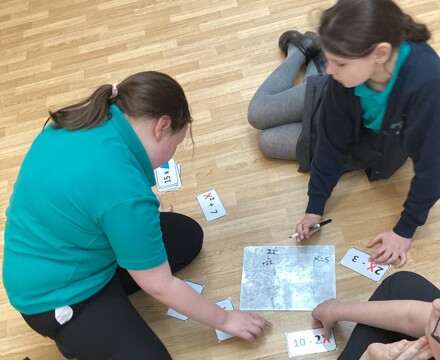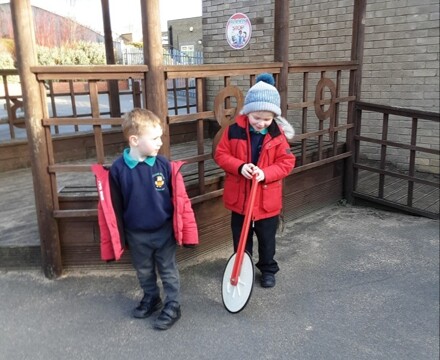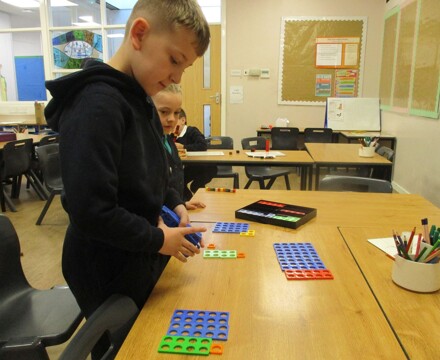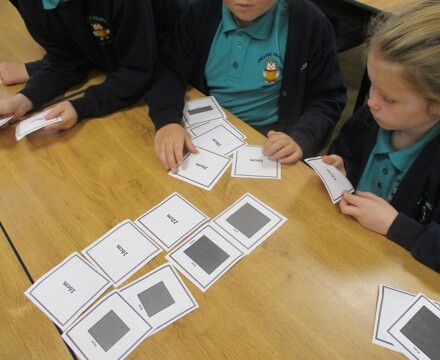- Home
- In the Classroom
- Subject Information
- Maths
Maths
BackVision and Aims
At Oxclose Primary Academy, our vision for mathematics is to cultivate a vibrant and dynamic mathematical environment where every child is empowered to become a confident and capable mathematician. We believe that mathematics is not just a subject, but a vital life skill that is applicable in everyday situations. Through our curriculum and teaching methods, we aspire to instill a love for mathematics that encourages pupils to explore, inquire, and connect their learning to real-world contexts
At Oxclose Primary Academy, our Mathematics curriculum aims to ensure that all pupils:
- build a strong foundation in mathematical fluency, enabling pupils to manipulate numbers and concepts with ease and accuracy.
- develop critical thinking and logical reasoning. Our children will be challenged with a variety of problems that inspire them to think deeply, reason through their solutions, and reflect on their learning.
- feel secure in taking risks within their mathematical learning. We encourage an inquisitive mindset that empowers children to ask questions, seek clarification, and take ownership of their learning journey.
- are offered a rich variety of activities that spark curiosity and stimulate excitement about mathematics.
- make connections between different areas of mathematics and their application in the world around them, reinforcing the relevance of their learning.
Sequencing Rationale
- The curriculum is sequential across a given year and across year groups.
- The curriculum for each year group begins with the teaching of place value before moving onto addition and subtraction and multiplication and division. This knowledge and skills is then used when teaching fractions, decimals and percentages and measurement.
Extraordinary Opportunities
- When DLL focus on money, they will visit the local shopping centre to give the children hands on experience of using money.
- Life Skills sessions (with children ranging from EYFS to Year 6) have termly visits to Asda at the local shopping centre, where the children experience buying and paying for goods. Sometimes this involves them following a shopping list of ingredients, which they will then use back at school. These sessions involve weighing and measuring.
- Links to PSHE – decisions about money/careers:
- EYFS – People and their roles in society (link to aspirations)
- Y1 – What can we do with money?
- Y2 – What jobs do people do?
- Y5 – What decisions can people make with? What jobs would we like?
- Careers posters around school – adds to maths capital
Intent
At Oxclose Primary Academy, we believe that pupils should be given the opportunity to develop mathematical fluency, reasoning and problem solving. Across their time in primary school, we want pupils to become confident mathematicians, who are aware of how to use the skills they acquire in everyday life. We aim for them to become independent learners with inquisitive minds.
We believe that pupils should be offered fun and engaging opportunities to develop their mathematical knowledge and understanding. Pupils will be provided with a variety of mathematical opportunities which will enable them to make connections in learning leading to greater depth learning, ensuring they are confident mathematicians who are not afraid to take risks.
It is our intent that children understand that mathematics is not a stand-alone subject and should be given opportunities to further develop their skills using other curriculum areas, such as: Science, Computing and Design and Technology.
Implementation
Mathematics is a core subject within school and the Mathematics Long Term Plan follows the National Curriculum.
Mathematics is taught every day in all year groups. In KS1, sessions last 45-50 minutes, whereas in lower KS2, sessions are 50 minutes and in upper KS2 sessions are 1 hour and ten minutes. Ten minutes of each session, in both key stages, has an arithmetic focus which enables the children to become increasingly fluent in both mental and written methods.
Where new mathematical concepts are being introduced, pupils will be given the opportunity to use concrete and pictorial representations before using abstract methods. The Calculation policy sets out the order in which strategies should be taught and the method which should be adhered to. Children should be made aware of the most efficient strategy which should be used for given calculations.
Within each class there will be a mathematical display, where strategies, which are currently being taught, and relevant vocabulary should be displayed.
Pupil’s mathematical work, including arithmetic, will be recorded in books with squared paper. The size of the squares will be dependent on the key stage.
During maths sessions, pupils will be given the opportunity to use maths talk to deepen their understanding and to develop their reasoning and problem-solving skills.
Assessment will take place across lessons, at the end of each strand and across the school year.
Impact
Pupils will be passionate about mathematics. They will talk enthusiastically about their learning and be eager to develop this further. They will become fluent in the fundamentals of mathematics and will be able to reason mathematically. Pupils will become keen and resilient problem solvers by applying their mathematical knowledge to a variety of problems.
To enable us to measure the impact, the subject lead and senior leaders will use data analysis, lesson visits, work scrutinies and pupil voice activities across the year.
| Subject Documents |
|---|
| Early Years Maths LTP Overview |
| Y1 Maths LTP Overview |
| Y2 Maths LTP Overview |
| Y3 Maths LTP Overview |
| Y4 Maths LTP Overview |
| Y5 Maths LTP Overview |
| Y6 Maths LTP Overview |




